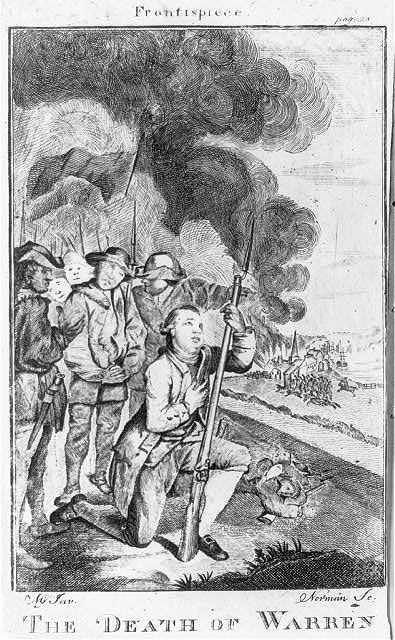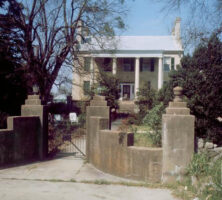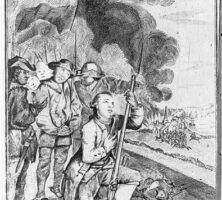Warrenton, the seat of Warren County, is located in east central Georgia on the edge of the southern Piedmont, forty-six miles west of Augusta and forty-seven miles northeast of Milledgeville.
It is situated at the intersection of U.S. Highway 278 and Georgia highways 16 and 80. Norfolk Southern and CSX Corporation provide rail service from Warrenton to Atlanta, Augusta, Macon, and Savannah; there is no direct air service. The city’s land area is slightly less than two square miles. The county and town were both named for Joseph Warren, a Massachusetts physician and patriot who was killed at the Battle of Bunker Hill during the Revolutionary War (1775-83).

When the county was created in 1793, the state legislature named a commission to select the county seat and erect a courthouse and jail. By 1796 a courthouse had not yet been built, so the assembly directed that the county court meet at the home of plantation owner Sterling Gardner. Gardner donated a plot of his land on Goulden’s (or Golden’s) Creek for the courthouse, and the site was designated as the permanent county seat of Warren in 1797. A courthouse was built in 1809, and the town of Warrenton incorporated the following year. Warrenton became a city in 1908. In 1853 he original courthouse burned, as did its replacement in 1909. The current courthouse, built on the same site as the previous two, dates from 1910 and is listed on the National Register of Historic Places.
Other places in Warrenton listed on the National Register include the Roberts-McGregor House (1835), the gymnasium-auditorium, and the downtown historic district. The Warren County Library is home to the Mill Branch Indian Artifact display, which includes prehistoric items.

Highway 278 through Warrenton follows the trace of the famous Upper Trading Path, a trail that led from Augusta to Indian villages as far west as the Mississippi River. Although grants from colonial days still exist for the settlement of land that now constitutes part of Warren County, the earliest known residence in what became the town of Warrenton was the Jacob Burkhalter Home, built around 1778 by a Revolutionary soldier. The house has been moved from its original location in town but is still standing. In March 1825, during his American tour, Marquis de Lafayette stayed at the Burkhalter House while traveling by stage from Augusta to Milledgeville. During his stay in Warrenton, a ball was held in his honor at the Allen House (later Fair Havens), which has since been moved to Arnoldsville in Oglethorpe County.
When the original Georgia Railroad was built through Warren County in the 1830s, it bypassed Warrenton by a mile. A mule-car rail line that transported passengers to catch the mainline was built from Warrenton to the town of Camak, thus earning Warrenton the nickname “Muletown.” At the beginning of the Civil War (1861-65), construction began on an extension of the railroad from Camak through Warrenton to Milledgeville and Macon, but work was halted in 1864; the line was completed to Milledgeville in 1868 and to Macon in 1871. During his flight from U.S. authorities in 1865, Confederate president Jefferson Davis and his party camped on the night of May 4 at the Ogeechee River just outside Warrenton, then probably passed through town on the morning of May 5 on their way south to Warthen.
The city has a weekly newspaper, the Warrenton Clipper, and one FM radio station. The Clipper was founded as a weekly in 1843, before which it was a literary periodical. Medical care is provided by the Tri-County Medical Center. Many of Warrenton’s employed residents work outside the city. Manufacturing provides 47.2 percent of the jobs in the surrounding county. Forestry and forest products are other staples of the county’s economy.
The consolidated Warren County School System operates a high school, middle school, and elementary school, all of them in Warrenton. A private school, Briarwood Academy, is also located in town.
Warrenton’s population, according to the 2020 U.S. census, was 1,744.






